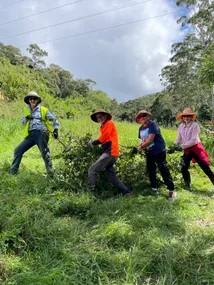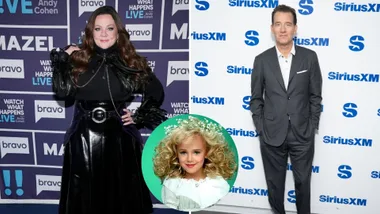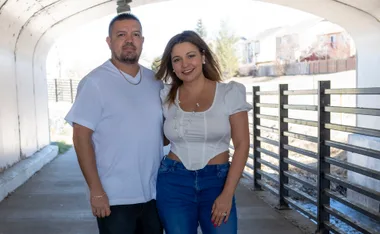- On his first training shift as a paramedic in 2016, Tim learned the reason people ring an ambulance isn’t always an emergency
- While he responded to jobs specifying a lack of breath or chest pains, Tim soon learned they were for absurd reasons
- Although he initially saw these jobs as a waste of time, he soon saw the humour in it, even penning a book about the absurd reasons people ring an ambulance
- Tim Booth, 33, dishes the dirt on some of the dodgy jobs he’s been called to…
With his hands clutching the steering wheel, my training officer, Phil, fired questions at me.
“What if it’s an asthma attack?” he shouted above the sound of the wailing sirens.
I answered as best I could, then Phil quickly asked more questions.
My heart pounded with nerves.
It was 2016, and I was 25 and out on my first training shift as a paramedic, having recently qualified with my paramedic’s degree.
I’d worked as a journalist before but had switched careers, keen for something more exciting and less desk-bound.
Now we were speeding along to an address in Western Sydney to a man apparently struggling to breathe.
A myriad of scenarios awaited us: a heart attack, an allergic reaction …
Phil, my training officer, parked the ambulance; I grabbed the defibrillator and we rushed up to the front door.
A young man flung it open.
“He’s upstairs,” he said.
We raced up to the bedroom only to find two big lumps under the doona.
“You called for emergency services?” Phil said.
The doona was flung off and a woman and man were revealed.
The man started writhing around on the bed.
Read more: Aussie influencer catches the gruesome moment a magpie lodged its beak in her eye

“What’s wrong, mate?” Phil asked.
“I can’t breathe,” he replied clutching his chest.
I stood there nervously like a deer in the headlights.
But for Phil, who had eight years’ experience under his belt, this set off alarm bells. The man was speaking in full sentences.
“What do you mean, you can’t breathe?” Phil probed.
“I can’t breathe out of my nose,” the man clarified.
Phil’s face went as red as our first aid bag.
“You called an ambulance for a blocked nose?” Phil asked, barely concealing his rage.
He pulled out his phone and searched for the address of a 24-hour emergency pharmacy then looked at the guy’s wife.
“Go and buy him some nasal spray,” he said.
Back in the ambulance, we wrote up our notes.
“What a waste of time,” I said, incredulous.
“Get used to it,” Phil replied.
I soon discovered that 90 per cent of jobs we went to were non-emergency.
Only ten per cent were life-saving, baby-delivering “hero” jobs.
Still, I got a taste for that later on my first shift.
Straight after the blocked nose incident, we got a call out to a 20-year-old male who had threatened suicide.
The police were outside the Sydney address and escorted us in.
“I’ll get the stretcher and another crew,” Phil said and left me on my own with the police officer and the dying man.
Way out of my depth, I knelt beside the patient and squeezed his shoulder.
“Can you hear me?” I asked.
We raced the guy to hospital where, thankfully, his life was saved.
I was shaken but relieved and satisfied that he’d made it.

That first year, I learnt many call outs came from the same people with the same complaints. We called them ‘frequent flyers’.
Often, it was elderly patients falling out of bed, or addicts wanting medication.
Many people falsely thought calling the ambos would mean they’d get to jump the queue and be seen quicker in hospital.
Towards the end of my first year, we attended a man suffering from chest pain.
We found him pacing his lounge room wearing only his boxers, his skin as red as a lobster. His chest pain was sunburn.
“Give me something for the pain!” he hollered at us as soon as we walked in.
“Take a shower,” my female colleague replied, unimpressed.
“Tried that, didn’t work,” the man whimpered.
Then an idea occurred to him.
“I’ve got Greek yoghurt in the fridge … would that work?” he asked.
I was about to say no, but my colleague interjected.
“Yeah, give that a try,” she said, winking surreptitiously at me.
The man scooped out handfuls of the stuff and wiped it all over his singed skin.
He looked ridiculous.
“Can you do my back?” he asked my colleague, but she was already walking out the door.
Once, I was called out to a man cowering behind a tree, terrified of being attacked by a magpie.
I’ve lost track of the number of times I’ve attended people freaking out after smoking or ingesting marijuana.
In 2019, I met my girlfriend Fiona but chose not to bring the crazy stories of my day home to her. I liked to keep my work and home life separate.

Later that year, I trained to become an intensive care paramedic, hoping this would mean I’d only attend the more serious jobs; but then the COVID pandemic hit.
It was a terrifying time to be a paramedic, especially at the beginning when we had limited PPE and had to enter houses with many infected and very unwell family members with no idea what would happen to us if we caught it.
Fiona and I got married in March this year. She’s very patient with my odd shift patterns. It’s an often-thankless job, vastly different from its glorification on TV shows, but I do love it.
That’s why I decided to write my book, You Called an Ambulance for What? a comic memoir on the challenges, absurdities and reality of life as a paramedic.
I strongly believe the system needs to change where our services are reserved for the real emergencies.
But until then, I’ll continue to attend to the sunburn and blocked noses people call the ambos for.
You Called an Ambulance for What?, Pan Macmillan Australia, is available to buy now.










